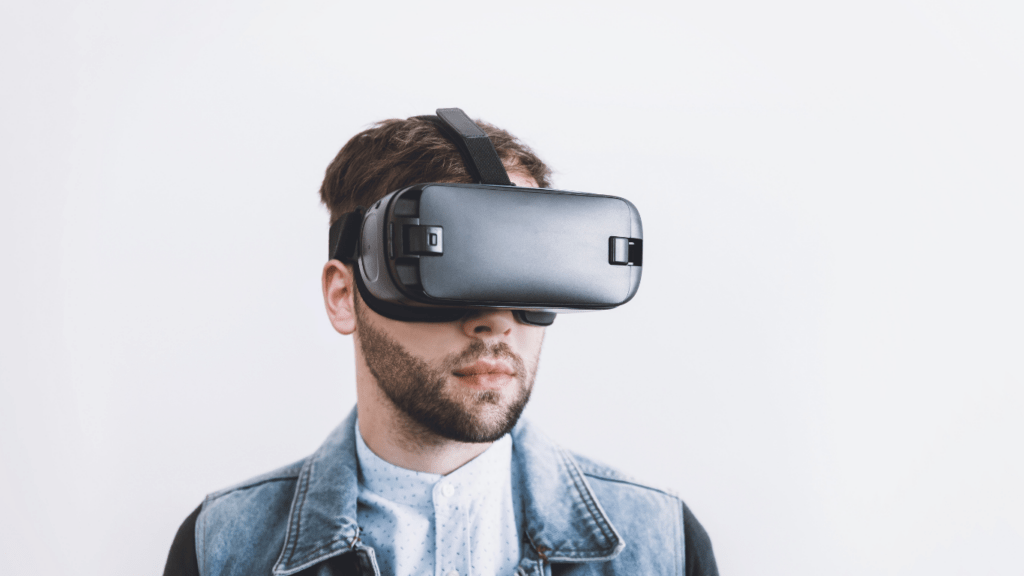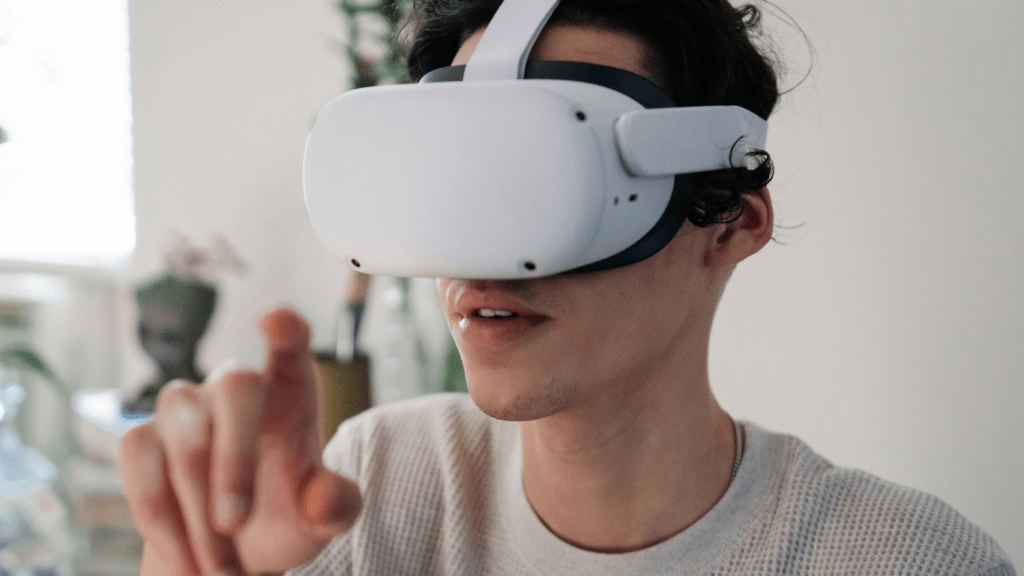Understanding Virtual Reality in Casinos
Virtual reality in casinos creates an immersive environment, replicating the brick-and-mortar casino experience online. When players wear VR headsets, they enter a 3D casino space where they can move around, interact with dealers, and engage in live games. Unlike traditional online casinos offering 2D interfaces, VR casinos provide lifelike graphics and sound effects.
To enhance realism, VR casinos include features like voice chat. Players can communicate with other gamblers and dealers, enhancing social interaction. Real-time gestures and facial expressions further improve immersion.
Leading casino operators are investing heavily in VR technology. By leveraging advancements, they’re offering experiences like VR poker tournaments and virtual slot machines. For example, PokerStars VR provides players with a fully interactive poker environment, including avatar customization and in-game accessories.
The fusion of VR with live-dealer games sets a new standard. Players feel present at the table, watching cards dealt in real-time. This blend bridges the gap between online convenience and physical authenticity.
VR also brings new opportunities for casino marketing. Virtual spaces can host events, concerts, and exclusive promotions. Players attending these events enjoy unique experiences, fostering brand loyalty and engagement.
Establishing security and fairness is critical in VR casinos. Advanced encryption and RNG (Random Number Generator) technologies ensure that virtual games are as secure and fair as their offline counterparts. Reputable VR platforms prioritize these aspects to build trust.
Adopting VR in casinos marks a significant shift. Although still evolving, it promises to reshape how people gamble, blending traditional elements with modern technology for a richer gaming experience.
Current State of VR Technology
Virtual reality (VR) has come a long way, accelerating its influence on various industries, including casinos. Significant advances continue to push the boundaries of what’s possible in VR.
Hardware and Software Developments
Current VR hardware includes headsets like the Oculus Rift, HTC Vive, and Sony PlayStation VR. These provide high-resolution displays and low-latency tracking for immersive experiences. Headsets now feature built-in audio, motion controllers, and even wireless options, enhancing user comfort and mobility.
Software advancements include VR-specific platforms, such as Oculus Home and SteamVR, which offer a wide range of applications and games. Developers focus on creating responsive and interactive environments. Game engines like Unreal Engine and Unity now support advanced VR features, enabling realistic graphics, physics, and interactions.
Integration With Existing Casino Games
Casinos integrate VR with games like:
- poker
- blackjack
- slot machines
Players feel they’re in a real casino environment, interacting with other players and dealers. VR poker tournaments offer lifelike experiences, and VR blackjack tables replicate the physical card dealing process.
Software providers like NetEnt and Microgaming develop VR versions of popular slots and table games, making them accessible in virtual environments. This integration provides a seamless transition for players familiar with online casino games, blending traditional gaming elements with advanced VR technology.
Potential Benefits of VR in Casinos
Virtual reality (VR) technology offers numerous advantages for the casino industry. Enhanced player experiences, increased revenue streams, and improved training and security measures make VR a game-changer.
Enhanced Player Experience
VR transforms the player experience by creating immersive, interactive environments. Users can walk through virtual casino floors, engage in lifelike games, and interact with other players using real-time gestures and voice chat. This level of immersion makes the gaming experience superior to traditional online casinos. For instance, VR poker tournaments give players the feeling of sitting at a real poker table, making the experience more engaging.
Increased Revenue Streams
Casinos gain new revenue streams by adopting VR technology. VR casinos attract a younger, tech-savvy audience interested in innovative gaming experiences.
Operators can charge premium fees for VR experiences and offer exclusive games, boosting profits. Virtual events for high rollers and unique promotional activities can also drive additional income. Data from Statista shows VR market revenue is projected to reach $62 billion by 2027, indicating a strong financial opportunity.
Improved Training and Security Measures
VR enhances training and security within casinos. Staff training can be performed in realistic, simulated environments, allowing employees to practice and refine their skills without real-world consequences.
Security personnel can use VR to simulate and prepare for potential threats or emergencies, optimizing their readiness. Advanced encryption ensures that VR systems remain secure, protecting both the casino and its patrons from cyber threats.
These benefits underline how VR can revolutionize the casino industry, providing a more dynamic, profitable, and secure environment for everyone involved.
Challenges and Limitations
Virtual reality in casinos offers exciting possibilities but also comes with several challenges.
High Initial Costs
The cost to develop and implement VR technology is high. Casinos must invest in advanced hardware and software. VR headsets and controllers, which can cost several hundred dollars each, require ongoing maintenance. Developing immersive VR games necessitates skilled developers and artists, raising costs further. Operators may hesitate to adopt VR due to these financial hurdles.
Technical and Regulatory Hurdles
Integrating VR into casinos isn’t just expensive; it’s technically complex. Achieving seamless VR experiences demands robust internet connections and high-performance servers. VR content must be compatible with various devices, adding to the challenge.
Regulatory barriers also pose significant issues. VR casinos must comply with gambling laws that vary widely by region. Obtaining necessary licenses can be time-consuming and costly. Additionally, enforcing responsible gambling in a virtual environment is difficult, especially ensuring that users are of legal age.
Technical challenges and regulatory barriers could slow the widespread adoption of VR in casinos.
Case Studies and Success Stories
Analyzing real-world examples helps understand the transformative impact of VR in casinos. These cases illustrate successful implementations and innovations.
Leading VR Casino Platforms

Several VR casino platforms are leading the charge, showing the potential of this technology.
- SlotsMillion created the first VR casino, providing over 40 games in a fully immersive environment. Players use VR headsets like Oculus Rift to navigate a virtual casino floor, play slots, and interact with other users. This groundbreaking application allowed SlotsMillion to attract a tech-savvy audience quickly.
- VR Casino is another prominent example, offering a range of poker, roulette, and card games. The interactive dealer experience, where users can see and communicate with live dealers, sets VR Casino apart. These features have increased user engagement significantly, resulting in higher session lengths and more frequent returns.
Innovative VR Casino Games
Innovation in game design has further propelled VR’s success in casinos.
- Gonzo’s Treasure Hunt, developed by Evolution Gaming, merges VR with a live game show format. Players join a virtual treasure hunt, interacting with characters and environments in real-time. This blend of gaming and reality has captivated audiences, setting a new benchmark for immersive entertainment.
- VR Roulette by Microgaming offers a unique spatial experience. Players feel like they are sitting right in front of the roulette table. Realistic physics and high-quality graphics make the game more engaging. This innovation has led to increased player retention and satisfaction.
These examples demonstrate VR’s capacity to redefine the casino experience, making it more immersive and interactive. The successful application of VR technology in these platforms and games highlights its potential to revolutionize the industry.
Future Prospects and Trends
Virtual reality in casinos holds significant promise for innovation. The future might see VR blending seamlessly into the gambling sector, driving new and immersive experiences.
Technological Advancements
VR hardware and software are evolving rapidly. Advanced headsets like Oculus Quest 2 deliver high-resolution visuals and responsive tracking, making casino gaming more immersive.
Innovations in haptic feedback provide tactile sensations, enhancing realism. Artificial intelligence is another key player, offering sophisticated virtual dealers and personalized gaming experiences. By integrating AI, VR casinos optimize gameplay, adapting to individual player preferences.
Evolving Regulatory Landscape
Regulations are essential for VR casinos to thrive. Authorities are beginning to address VR gambling, developing frameworks to ensure fair play and user protection.
The UK Gambling Commission and Malta Gaming Authority are leading in setting standards for VR casino operations. By focusing on issues like identity verification and data security, regulators aim to foster a safe environment for VR gamers. As the regulatory landscape evolves, compliant casinos will gain trust, driving wider adoption of VR technology in the gambling sector.



 Elizabeth Dinglerrin
Founder & CEO
Elizabeth Dinglerrin is the visionary founder behind Bet Wise Daily. With a wealth of experience in the gambling industry and a deep passion for data-driven insights, Elizabeth established Bet Wise Daily to provide a comprehensive source of news, analysis, and exclusive content for casino enthusiasts. Her leadership and strategic acumen have shaped the platform into a leading authority in gambling media. When she's not immersed in the latest trends or pioneering new features, Elizabeth enjoys sharing her expertise at industry conferences and mentoring aspiring professionals in the field.
Elizabeth Dinglerrin
Founder & CEO
Elizabeth Dinglerrin is the visionary founder behind Bet Wise Daily. With a wealth of experience in the gambling industry and a deep passion for data-driven insights, Elizabeth established Bet Wise Daily to provide a comprehensive source of news, analysis, and exclusive content for casino enthusiasts. Her leadership and strategic acumen have shaped the platform into a leading authority in gambling media. When she's not immersed in the latest trends or pioneering new features, Elizabeth enjoys sharing her expertise at industry conferences and mentoring aspiring professionals in the field.
